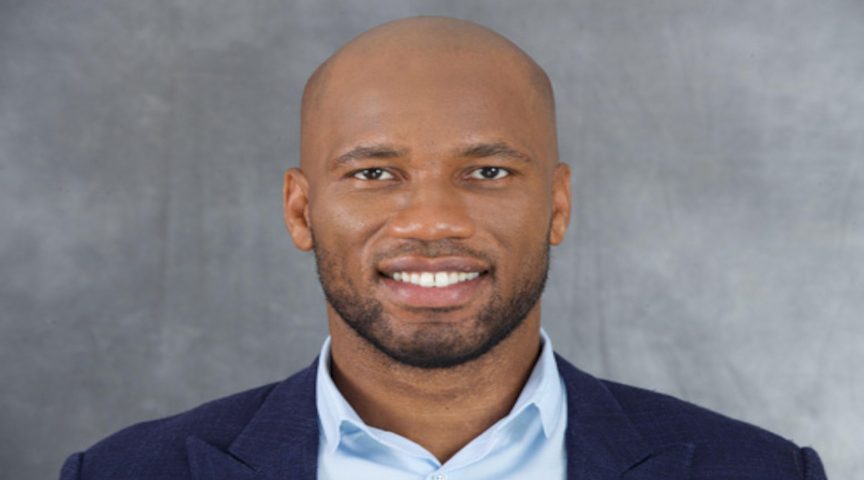Didier Drogba’s Legacy

Hidden Costs
June 30, 2021No Justice (Part One) – The Triumph Before the Fall
July 4, 2021Didier Drogba’s Legacy

By Satish Sekar © Satish Sekar (February 14th 2021)
“The evil that men do lives after them. The good is oft interred with their bones.”[1]
Immense
The Ivory Coast’s highest scorer in international football is an African legend – a football one too. Didier Drogba will always be remembered fondly by Chelsea fans and those of Ivory Coast too for his exploits on the pitch. But his exploits off the pitch are worthy of recognition and respect too.
Few footballers can claim to have such clout that they secured a ceasefire in a war-torn country by demanding it as a condition to come there. Drogba can make that claim.
He once told warring factions in la Côte d’Ivoire (Ivory Coast) that if they did not agree to a ceasefire he would not come there. They caved in and agreed to the ceasefire. It was not the only time that he was part of efforts for peace in Ivory Coast.
Taking a Knee for Peace
In 2005 the Elephants qualified for a World Cup for the first time by beating Sudan 3-1.With a brutal civil war raging in Ivory Coast, Drogba and other players decided to speak up for peace. At the instigation of the Elephants’ captain Cyrille Domoraud, Drogba addressed media thus:
“Men and women of the Ivory Coast; from the north, south, centre and west, we proved today that all Ivorians can coexist and play together with a shared objective: to qualify for the World Cup,” Drogba said.
“We promised you that the celebration would unite the people. Today, we beg you, please – on our knees – forgive, forgive, forgive.
“The one country in Africa with so many riches must not descend into war like this. Please, lay down all weapons. Hold elections, organise elections. All will be better.”
And so, the war had claimed many lives, displaced many, many more, causing untold misery entered a new stage. The warring factions began talks and two years later the five year-long war finally ended. Ivorian footballers, especially Drogba – their star player – played a vital role in achieving that.
Less than a decade later Mali’s Seydou Keita used his platform at AFCON to tearfully call for peace in his country.
Exceptional Gesture
The contribution of Ivorian footballers to the cause of peace is exceptional, especially when it is borne in mind that some of them were treated as pariahs just five years earlier.
In 1999 Henri Konan Bédie was removed from power – General Robert Guéï had been removed from government and the military two years earlier. Guéï was installed as the head of government. Elections were eventually organised with Laurent Gbagbo the only permitted opponent. Gbagbo won easily but Guéï refused to accept the result. The Ivory Cost slid towards civil war which broke out in 2002. Guéï was one of the first casualties.
After a very poor performance, by their standards, in the Africa Cup of Nations (AFCON) in 2000 (hosted by Ghana and Nigeria) the Ivorians were sent packing 3-0 by Cameroon, the eventual champions.
Gueï was incensed and imprisoned footballers for three weeks at the Zambarko Military Camp, subjecting them to military discipline. Among those detained was Bonaventure Kalou, currently the Mayor of Vavou. Players, including Drogba and Kalou took a knee for peace in their country long before Black Lives Matter was born.
His Legacy
Drogba was not alone but now, his exploits on the pitch over, Drogba wants to become President of the Ivorian FA. He lacks administrative experience and failed to get the necessary nominations to stand. That should have ended the matter, but Drogba was determined and contested it. He eventually secured the support needed to meet the requirements and was declared eligible. FIFA intervened as the Fédération Ivorienne de Football (Ivory Coast’s FA) tried to establish a new Electoral Commission.
FIFA decided to cancel the Ivorian FA’s Extraordinary General Meeting and turn it into an arbitration meeting instead. That failed and just before Christmas 2020 a Normalisation Committee was imposed on the Ivory Coast’s football. The final effect this will have on Drogba’s
[1] From Mark Antony’s oration for Julius Cæsar in Willim Shakespeare’s play, Julius Cæsar.

